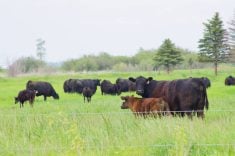Dairy farmer David Older is nervous about biotechnology’s unknowns.
He sees better yields and healthier stands at harvest time as the main benefits to be reaped from insect-resistant corn and glyphosate-resistant soybeans.
Yet he is nagged by questions about unknown consequences for the environment and human health.
The Ontario farmer said the moral questions looming in his mind may eventually override the farm productivity gains made possible by these genetically modified products.
He knows there is a diversity of opinion, ranging from those who embrace biotechnology to those who reject it.
Read Also

House ag committee to undertake several studies
The House of Commons standing agriculture committee has set its agenda for the coming months. Members began the fall sitting with a two-hour update on international trade
He also knows where he stands.
“I am uncomfortable with it.”
He said he is also a realist, telling a Crop Protection Institute meeting in Calgary that farmers must accept these scientific advances. Yet there must be trust in the regulatory system and its science-based proof.
“We cannot allow conjecture and speculation to be the arbiter of what comes to the marketplace,” he said.
He called for an ethical and moral foundation to ground the development of these products and he demands honesty from those who promote these products.
“If the consumer asks, you answer,” he said.
On his farm he knows biotech products often require closer management and cost more than traditional products.
He used Bt corn to curb a problem with the European corn borer larvae. Traditional corn cost him $78.07 to grow while Bt corn cost $89.82 per acre. If infestations are low, the corn is expensive crop insurance.
On Older’s farm, these new technologies must add value or they are simply an intellectual exercise.
There are other concerns as well.
Most farmers believe that the same kind of resistance that has stemmed from pesticides and drugs will also developed around these genetically altered crops. He does not necessarily want a moratorium, but advises caution.
He also feels vulnerable dealing with multinational companies that call the shots. He worries farmers are forgotten while companies build monuments to themselves, paid for by profits from biotech.

















